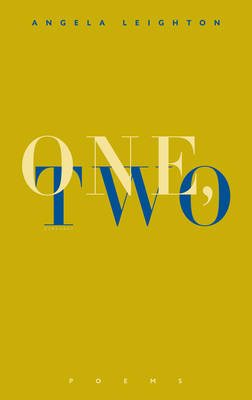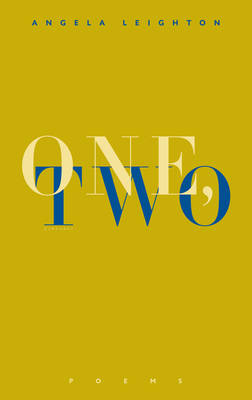
Door een staking bij bpost kan je online bestelling op dit moment iets langer onderweg zijn dan voorzien. Dringend iets nodig? Onze winkels ontvangen jou met open armen!
- Afhalen na 1 uur in een winkel met voorraad
- Gratis thuislevering in België vanaf € 30
- Ruim aanbod met 7 miljoen producten
Door een staking bij bpost kan je online bestelling op dit moment iets langer onderweg zijn dan voorzien. Dringend iets nodig? Onze winkels ontvangen jou met open armen!
- Afhalen na 1 uur in een winkel met voorraad
- Gratis thuislevering in België vanaf € 30
- Ruim aanbod met 7 miljoen producten
Zoeken
Omschrijving
In 'Pickpocket, Naples, ' a sonnet sequence reflecting on her Neapolitan background, Angela Leighton imagines a poem 'surprised in the act of finding itself.' Constantly alert to such surprises, One, Two moves from memory-scapes of childhood to elegies for her mother, quirky tributes to the creatures of the natural world to anguished poems about breath and breathlessness in times of coronavirus. Some of these poems are in formal stanzas; others catch the spaced freedom of dream or day-dream. Above all, this is a poetry which insists on the rhythmic footstep that walks in words, on the 'one, two' of a beat in language, whether the steps of a dance or the daily countdowns of sickness and death. The volume ends with some translations of the poetry of Dante and Pirandello which, either strictly or more freely, test the limits of translation. This is Leighton's fifth volume of poetry, and shows once again her characteristic sense of wit, music, and formal invention.
Specificaties
Betrokkenen
- Auteur(s):
- Uitgeverij:
Inhoud
- Aantal bladzijden:
- 154
- Taal:
- Engels
Eigenschappen
- Productcode (EAN):
- 9781800170162
- Verschijningsdatum:
- 25/03/2021
- Uitvoering:
- Paperback
- Formaat:
- Trade paperback (VS)
- Afmetingen:
- 211 mm x 130 mm
- Gewicht:
- 181 g

Alleen bij Standaard Boekhandel
+ 36 punten op je klantenkaart van Standaard Boekhandel
Beoordelingen
We publiceren alleen reviews die voldoen aan de voorwaarden voor reviews. Bekijk onze voorwaarden voor reviews.











